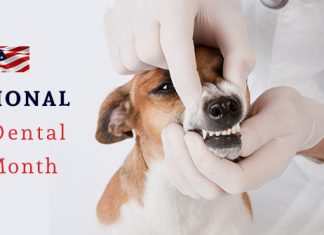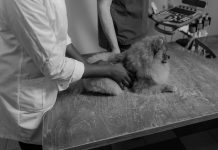Welcoming a new puppy into your home is a joyful experience, filled with wagging tails, playful antics, and boundless energy. As a new pet parent, your top priority is ensuring your furry friend grows into a healthy and happy adult dog. While this journey is incredibly rewarding, it can also be filled with questions and uncertainties. What are the best practices for feeding? How do you ensure their mental and physical well-being? In this article, we will explore the essential health advice every puppy owner should know. From nutrition and exercise to vaccinations and regular vet check-ups, we’ll guide you through the crucial steps to lay the foundation for a long, healthy life for your beloved pup. Whether you’re a first-time dog owner or a seasoned pet parent, these insights will help you nurture your puppy with confidence and warmth, ensuring they thrive in their new forever home.
Choosing the Right Nutrition for Your Puppys Growth
Providing your puppy with the right nutrition is crucial to ensuring their healthy development. A balanced diet tailored to their specific needs sets the foundation for strong bones, healthy teeth, and a shiny coat. Start by choosing a high-quality puppy food that lists meat as the first ingredient, avoiding products with artificial preservatives, colors, or flavors. Puppies require a diet rich in protein, calcium, and essential fatty acids to support their rapid growth and energy levels. Be sure to check for the presence of DHA, an omega-3 fatty acid important for brain and vision development.
- Protein: Supports muscle growth and repair.
- Calcium and Phosphorus: Essential for strong bones and teeth.
- Omega-3 and Omega-6 Fatty Acids: Promote healthy skin and a glossy coat.
- Antioxidants: Strengthen the immune system.
Remember, each puppy is unique, so consider consulting with your veterinarian to tailor a feeding plan specific to your furry friend’s breed, size, and activity level. By providing the right nutrition from the start, you are laying the groundwork for a lifetime of health and happiness.

Creating a Safe and Stimulating Environment for Your Furry Friend
Ensuring that your puppy thrives involves crafting a haven where they can explore, learn, and feel secure. Start by puppy-proofing your home to remove any hazards. This includes securing electrical cords, storing cleaning supplies out of reach, and blocking access to small objects that could be swallowed. Consider setting up a cozy space with a comfortable bed and toys to keep them entertained. Interactive toys and puzzles are fantastic for mental stimulation and can help prevent boredom-related behaviors.
- Safe Spaces: Create designated areas where your puppy can relax and retreat when they need a break.
- Regular Exercise: Daily walks and play sessions not only promote physical health but also reinforce the bond between you and your furry companion.
- Positive Reinforcement: Use treats and praise to encourage desired behaviors, making your puppy feel safe and loved.
Incorporate these elements to build an environment that supports both the physical and emotional well-being of your puppy, laying the foundation for a long, healthy life.
Understanding Vaccinations and Preventive Care Essentials
Ensuring your puppy receives timely vaccinations is a cornerstone of their preventive care, shielding them from a range of infectious diseases. Vaccinations work by stimulating your puppy’s immune system to recognize and combat specific pathogens, which can be life-threatening if left unchecked. Your veterinarian will guide you through a tailored vaccination schedule, typically starting at 6 to 8 weeks of age, and continuing with booster shots throughout their early months.
- Core Vaccines: These are essential for all puppies and include vaccines for distemper, parvovirus, and rabies.
- Non-core Vaccines: Depending on your puppy’s lifestyle and risk factors, your vet might recommend additional vaccines, such as those for Bordetella or Lyme disease.
Alongside vaccinations, preventive care encompasses regular veterinary check-ups, a balanced diet, and proper socialization. Routine vet visits help in early detection of potential health issues, ensuring your puppy grows into a healthy adult. A nutritious diet tailored to your puppy’s specific needs supports their growth and development, while socialization fosters a well-adjusted temperament, crucial for their mental health.

Building a Bond Through Exercise and Mental Stimulation
Engaging in regular exercise and mental stimulation is crucial for fostering a deep connection with your puppy while ensuring their overall well-being. By incorporating activities that challenge both the body and mind, you can create a fulfilling routine that strengthens your bond. Here are some activities to consider:
- Interactive Play: Games like fetch or tug-of-war not only provide physical exercise but also enhance communication and trust between you and your puppy.
- Puzzle Toys: These toys offer mental challenges that stimulate your puppy’s problem-solving skills, keeping their mind sharp and engaged.
- Training Sessions: Regular, short training sessions can improve obedience and reinforce positive behavior, making daily interactions more rewarding.
- Nature Walks: Exploring new environments together can boost your puppy’s confidence and reduce anxiety, while also providing you both with fresh air and exercise.
Incorporating these activities into your daily routine not only supports your puppy’s health but also lays the foundation for a lifetime of companionship and joy.
















